| Home
> Student First! Dialogue
Series
August 2011 Dialogue
Panel Discussion on Strengthening Teacher Accountability through RTE Act
STUDENT FIRST!
Dialogue Series on Quality Education for All
|
|
Strengthening Teacher Accountability through
Right to Education Act
The trajectory of India’s education has seen an impetus with 95% enrollments in primary education. However, only 55% of these children actually complete elementary education. Drop -out rates increase through middle, high and higher secondary school. While the government currently debates NVEQF (National Vocational Education Qualification Framework) as a retention strategy, discourses around quality education must also become more robust. For parents, clear learning outcomes are strong incentives to keep their children in schools. Improved learning outcomes hinge on teachers who are central to delivering quality education in classrooms. While the recently passed RTE focuses more on infrastructure, reaching goals of education for all demands a look into how RTE can strengthen delivery in classrooms.
Towards encouraging debates in classroom delivery, the School Choice Campaign of The Centre for Civil Society presents Student First Dialogue on “Strengthening Teacher Accountability through Right to Education Act”.
|
School
Choice Campaign and India Habitat Centre
invite you
to an open forum
discussion on
|
Wednesday, 10 August 2011 | 6:30 - 8:30 PM*
Casuarina Hall, India Habitat Centre, New Delhi, India
* 6:30 - 7:00 PM - Networking over tea |
PANELISTS
Vinod Raina: Founding member of Eklavya and member of the Central Advisory Board for Education which drafted the RTE Act, 2009
Surendra Nath Dubey: President of All India Awardee Teachers Association and Editor In Chief of ‘School Siksha’ Magazine
Shashank Shukla: Teach for India Fellow, Chairman at Gurukul Education Society and member of the National Advisory Council Working Group
|
About
the School Choice Campaign
School Choice Campaign (SCC) advocates policy reform ideas to improve quality and access to education especially for the poor. STUDENT FIRST! Dialogue Series on Quality Education for All is a monthly forum for debate in collaboration with India Habitat Centre by the nation’s foremost experts on national education policies and solutions to problems of quality in the education sector. |
| |
 |
To
confirm participation:
Email: [email protected]
Tel: +91-11-26537456 / 26521882 / 26512347
www.schoolchoice.in
|
 |
|
|
Teacher Accountability has now become a fundamental concern to all discussions vying to propose solutions towards improving the quality of education delivered in India. But opinions often differ on how it should be strengthened and more so if the proposed measures are easy to implement both in the rural and urban areas. The Student First! Dialogue on August 10, analysed whether the current legislation – the Right to Education Act has provided mechanisms to achieve the same. Chaired by Jan S Rao, former Associate Director, School Choice Campaign with Surendra Nath Dubey, President of All India Awardee Teachers Association and Shashank Shukla, Teach for India Fellow, Chairman at Gurukul Education Society and member of the National Advisory Council Working Group as panelists, the discussions explored the means through which the RTE Act addresses the issue of teacher accountability and looked at possible solutions.
Jan S Rao outlined the major problems in relation with teacher accountability before introducing the panelists. He summarised the principal problems in India such as the absence of teachers and the shortage of educators that the government is facing while trying to implement RTE Act. In addition he mentioned that the RTE Act is vague on the issue of teacher accountability. He commented on the lack of a direct correlation between teacher salaries and student learning outcomes in India.
Surendra Nath Dubey started by questioning the type of education itself envisaged in the Indian education sector. He cited a few quotes by M. K Gandhi on how practical skill development and on-the-job-learning often take a backseat. He also outlined the problem of one teacher managing many classrooms in rural schools and responsibilities such as election duties that compete for the teacher’s time.
Shashank Shukla began by highlighting the infrastructure and teaching standards prevalent in India. He mentioned how there is no correlation between infrastructure and learning outcomes in India. The same result holds for education budgets and learning outcomes. He also informed the audience of the provision in the RTE which sought to cater to the issue of teacher accountability. The most important among these was the formation of School Management Committees and the outlining teaching hours. But he added that teacher accountability must be connected with learning outcomes for it to be a meaningful pursuit.
In the subsequent discussion with the audience the panelists collectively suggested some solutions to drive accountability such as the introduction of an all India teaching Service on the lines of the Civil Services, making the TET mandatory and greater usage of technology in achieving teacher accountability.
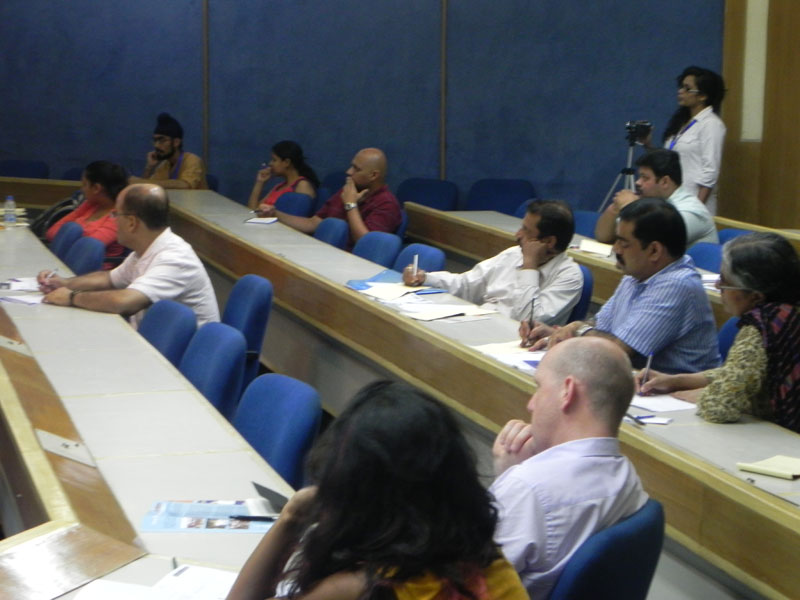 |
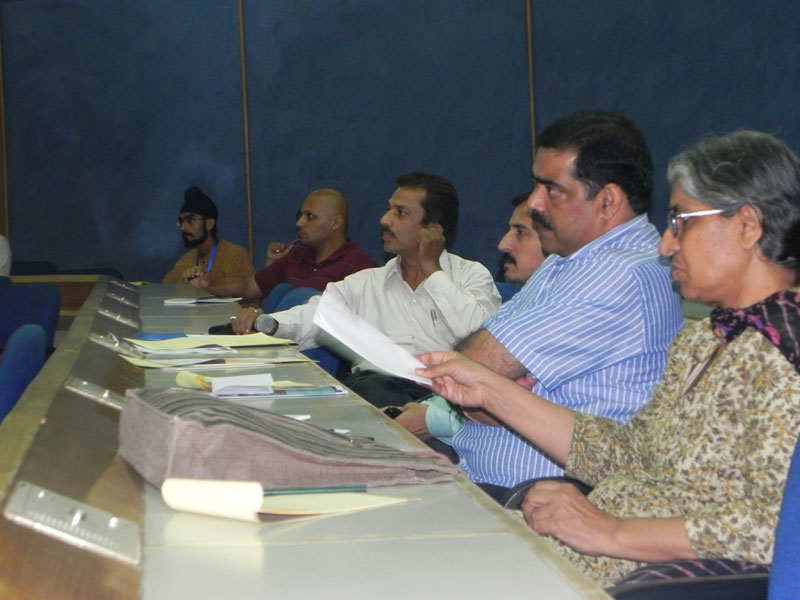 |
| Delegates at the SFD |
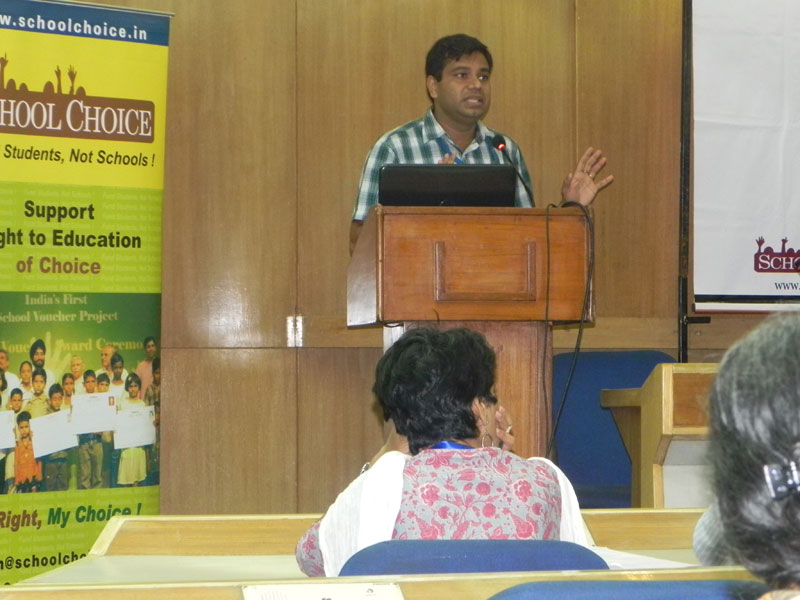 |
 < < |
| Mr Shukla addressing the delegates |
Mr Shukla's presentation on Righ to Education |
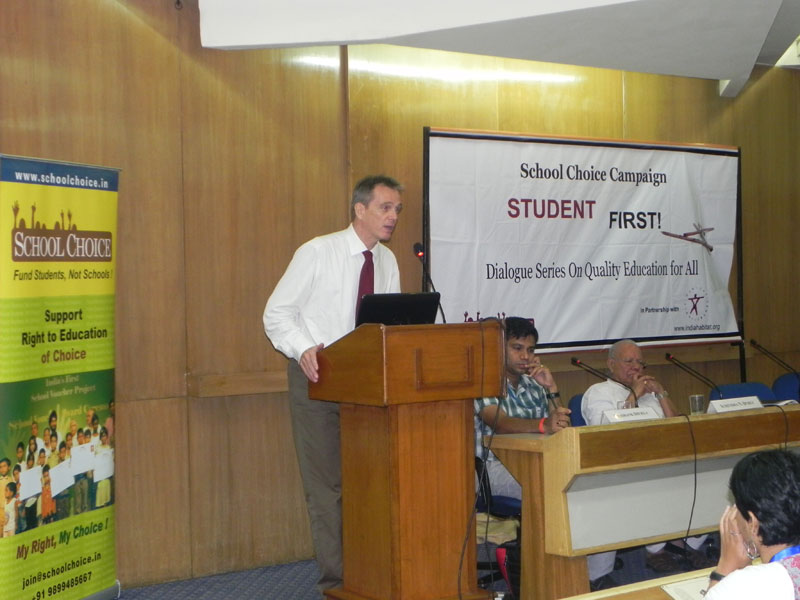 |
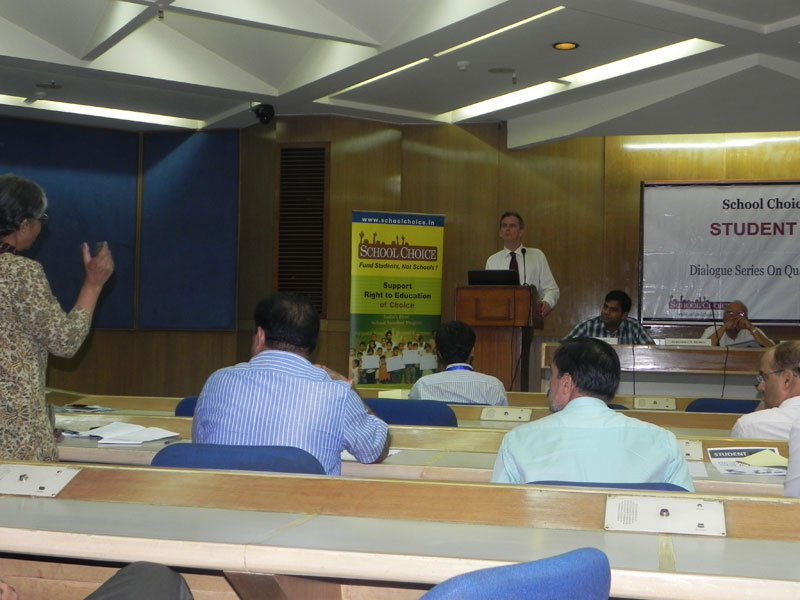 |
| Mr S Junnesson moderating the session |
Open forum at the end of dialogue |
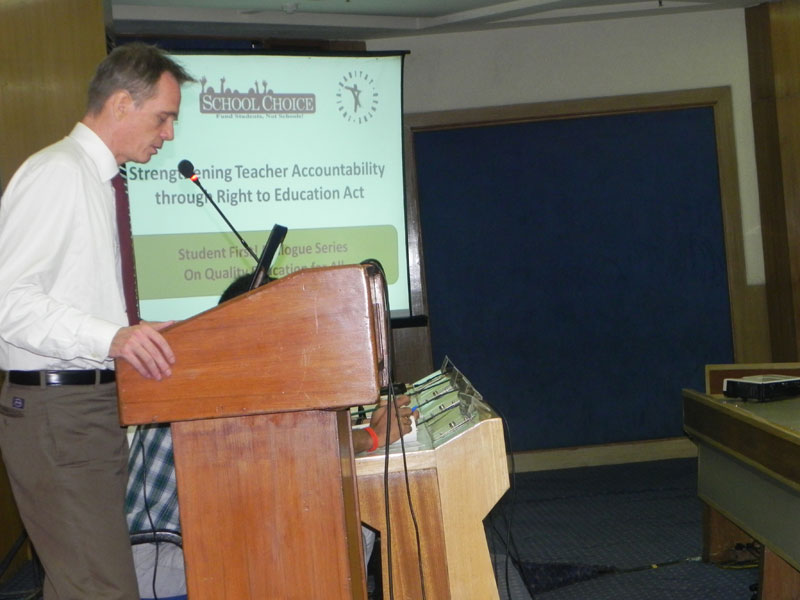 |
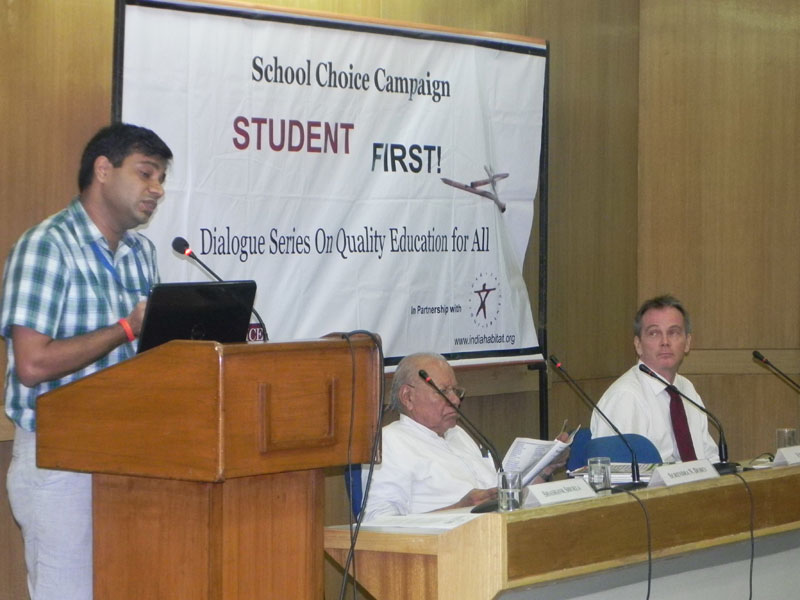 |
| SFD's topic for the evening |
The Speakers at the SFD |
|




















